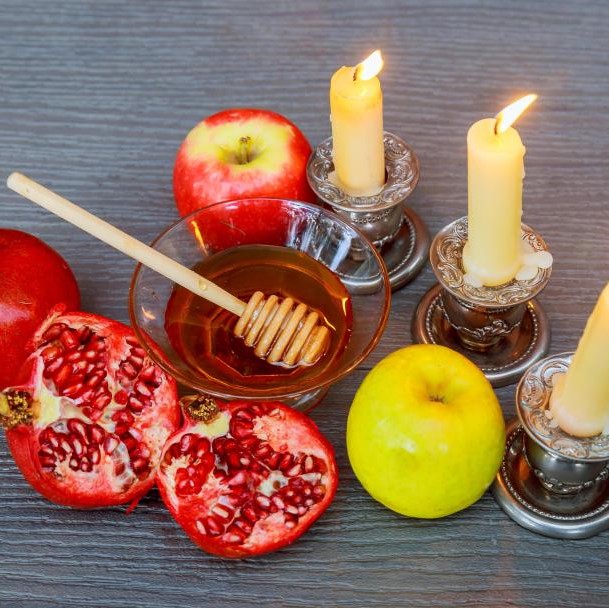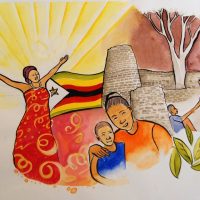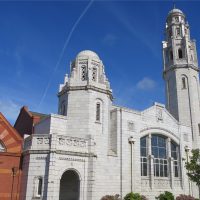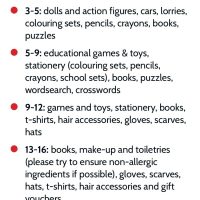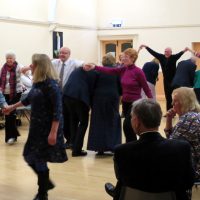It’s that time of year again when I wish everybody a Happy New Year. Before you think I’m going crazy or that I have accidentally sent the wrong month’s newsletter to everybody September is actually the New Year for many people. Sunset on Monday 6th September is the beginning of Rosh Hashanah, (literally ‘the head of the year’) the Jewish new year. It is also the start of the new school year and for many churches, especially the Methodist church, the start of a new church year. In many ways though September is also the close of the year. In the northern hemisphere it is the time of harvest, the completion of the growing cycle and the time to enjoy the fruits of the year.
In Judaism Rosh Hashanah is a time of remembrance, a time to take stock and review the past year. It is also a time of reckoning, of judgement, and the ‘coronation’ of YHWH (God) as king. It is the first of the High Holy Days, or Days of Awe, and as well as remembering is a time to look forward and celebrate. It begins with the sounding of the shofar (the rams horn trumpet) and is marked with eating sweet foods such as pomegranate and apples dipped in honey to symbolize the sweetness of the new year. On this day the Jews celebrate the creation of the world and recall their responsibilities as God’s chosen people.
More and more Christian churches are also now celebrating this time of year as ‘Creation Time’.
Both the Hebrew and Christian scriptures begin with the story of creation in Genesis chapters 1 and 2. According to this ancient creation story, over six days God created the earth, beginning with the day and night, and continuing with water and dry land; populating the land with vegetation; creating the sun, moon and stars; filling the waters, the skies and the land with animals; and finally creating man and woman, tasking them with the care of everything which had been made. Content with creation, God rests on the seventh day. This story of creation shows us what an incredible, complicated and beautiful place the earth is, and we are asked to care for it, to make sure that its natural balance is maintained.
Unfortunately human beings have been slow to appreciate the consequences of our actions and climate change is a result of our failure to do so. Our actions have affected the make-up of our atmosphere, the temperature of our waters, the ecosystems which support all life on earth, and demand for certain foods has put pressure on the natural world. We need to nurture this fragile balance, rather than upset its equilibrium with the way we live our lives. Science has shown us that there is now an urgent need to respond to the crisis created through climate change.
Look at all the parts of our world that are described in the creation story, and how they interlink with one another. There couldn’t be a day without night; dry land without the sea; fruits and seeds without dry land to grow on; fish without the sea for them to live in; birds without the sky. And finally, humans, who can’t exist without everything else – the water to drink, the land to live on, the plants to eat. Take out just one of those elements because we have destroyed it with our actions, and the rest will begin to become unbalanced and flounder. For example, it is said that without bees, mankind will die out within four years. How we treat God’s creation really matters. As we celebrate our harvest festivals this September let us also celebrate God’s creation and think of ways in which we can all look after it and help to restore its equilibrium.
Happy Harvest, Happy Creation Time and Happy New Year, Janet.


